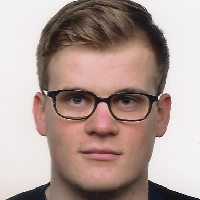Codeplay @ CGO 2024
15 April 2024
At the beginning of March 2024, Codeplay's home town Edinburgh was host to the four co-located conferences HPCA, CGO, CC and PPoPP. This blog-post is a short recap of our experience at the four conferences.
Topic-wise, the four conferences complement each other very nicely: HPCA covers new developments in the area of high-performance computer architecture, including accelerators such as GPUs. PPoPP on the other hand is all about the software-side of heterogeneous and parallel programming. And finally, CC and CGO discuss what connects the two - the compilers that map the parallel and heterogeneous programs to the hardware to achieve the best performance possible.
With these topics, the conferences are also a perfect match to Codeplay's mission to enable users to make the best of their hardware for AI and HPC tasks through an open software ecosystem. Therefore, Codeplay was proud to sponsor and support this event and support the open ecosystem. For us, this conference is particularly important for gathering and networking with individuals and organizations from across Scotland and the UK. This has only been reinforced by the news that Edinburgh is set to become home to an exascale supercomputer, pioneering the way forward for exascale computing within the UK.
The conferences kicked off with workshops on Saturday morning. The workshop organizers had done a great job of putting together exciting programs for each of their workshops with topics ranging from RISC-V processors to LLVM & MLIR to machine learning benchmarking infrastructure, and rooms were packed with interested participants.
Saturday afternoon also saw the kickoff of the CC conference with a keynote by Michael O'Boyle from Edinburgh University. He talked about some of the fascinating work done in his group over the years, focusing on their work to discover patterns in code that are amendable to offloading or parallelization through techniques such as program synthesis, described in a number of research articles including their paper on mlirSynth.
Sunday's program was again a combination of workshops and the CC conference, with the latter starting the day with an interesting keynote by Albert Cohen talking about the connection between performance engineering and compilers.
A highlight among the workshops of the day was the C4ML workshop, where the organizers had put together a strong program for a very interactive workshop, with talks about improvements to the MLIR infrastructure by Martin Lücke, an overview of the triton-shared project by Microsoft's Ian Bearman that aims to connect Triton to other MLIR-based compilation flows, and Renato Golin from Intel Labs demonstrating how upstream MLIR can be used to build an ML compilation flow with strong performance on Intel CPUs. Slides from the talks are available from the workshop website.
During the remaining days of the conference from Monday through Wednesday, the main programs of the PPoPP, CGO and HPCA conferences was held in parallel. Every day was opened by a keynote, with Derek Chiou giving an insight into their research on improving cloud architecture and Kunle Olukotun talking about dataflow architectures for AI foundation models. The last keynote by Nir Shavit presented some of the fundamental differences between today's AI model architectures and the human brain and how compression techniques such as sparsity can help to make those architectures resemble the brain more closely.
Among the papers presented during the remaining sessions of each day there were a lot of interesting works, far too many to mention all of them here. In brief, some of my personal highlights include:
- "A Framework for Fine-Grained Synchronization of Dependent GPU Kernels" by Abhinav Jangda et al., discussing how finer-grained synchronization for the wavefronts of dependent large matrix multiplications on GPUs can enable significant performance improvements in LLM inference (preprint).
- "Representing Data Collections in an SSA Form" by Tommy McMichen et al., describing how data structures (think `std::vector`) can be mapped into SSA form to enable the compiler to reason about individual entries of those data structures (preprint).
- "oneDNN Graph Compiler: A Hybrid Approach for High-Performance Deep Learning Compilation" by our colleagues from Intel led by Jianhui Li, combining compiler techniques with kernels tuned for high-performance to compile deep neural network graphs (preprint). Their work even won one of the distinguished paper awards, congratulations on this achievement!
We at Codeplay also presented our paper on building an MLIR-based SYCL compiler as part of CGO's main program, you can find more information on that work in a previous blog-post and the preprint linked in the post there.
Next to that, we also gave a talk in the C4ML workshop on Sunday, discussing how enabling C++ compilation in MLIR can enable the re-use of a lot of ML-focused optimizations developed in the MLIR framework for ML and HPC codes written in C++. Slides from that talk are also available from the workshop website.
The technical program was rounded up by a poster reception on Sunday evening and a great banquet at the Scottish National Museum, which not only came with delicious food but also the opportunity to stroll through the museum's exhibits. Those social events as well as the coffee breaks and the "hallway track" gave us plenty of opportunity to exchange with academic researchers and our colleagues from industry.
We can only congratulate the organizers on a very successful conference, with more than 700 participants (a 30% increase over 2023)!
